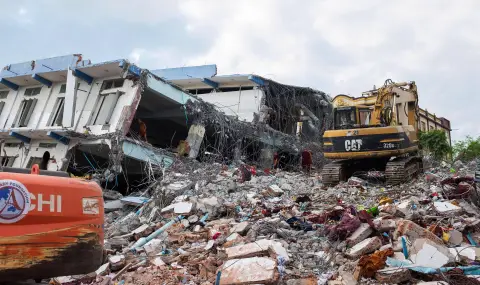Russia and Myanmar's ruling junta are pressing ahead with plans to build a small nuclear reactor despite the country being devastated in March by one of the deadliest earthquakes in its history, Russia's state nuclear corporation Rosatom, which is leading the project, told Reuters.
The agreement to build a 110-megawatt modular nuclear reactor was signed by President Vladimir Putin and General Min Aung Hlaing just three weeks before a 7.7-magnitude earthquake flattened entire villages and killed more than 3,700 people. The earthquake became the deadliest natural disaster in Myanmar in decades.
Despite the serious damage to infrastructure and the uncertain political situation, "Rosatom" assures that the project will not be canceled. "We comply with the highest international standards for safety and seismic resistance," the company's press service said.
The exact location of the future plant, which will use RITM-200N reactors - a technology originally developed for Russian icebreakers - has not yet been announced. According to Thai security sources, possible locations include the capital Naypyidaw, which was hit by the earthquake, the central Bego region and the Dawei economic zone in the south, where an oil port and refinery are also planned.
Myanmar is located on the border of two tectonic plates and is one of the most seismically active countries in the world. The country has a long history of destructive earthquakes, including in 1930, 2016 and 2024. However, the authorities insist that nuclear power will help stabilize the energy system.
The project is part of broader cooperation between Russia and the isolated junta, which has been facing a civil war since a military coup in 2021, which has collapsed the economy and displaced more than 3.5 million people. Russia has been a key ally of the regime in recent years, providing military and technological assistance.
However, independent experts question the economic logic of the project. "Nuclear power is extremely expensive, and Myanmar simply cannot afford it," said Richard Horsey of the International Crisis Group. According to him, the regime is using the project as a geopolitical signal and is looking for alternatives to Western isolation.
